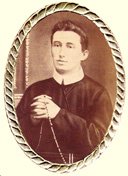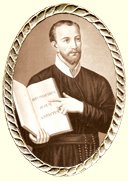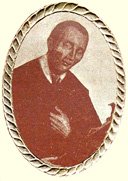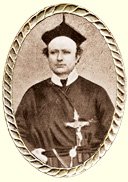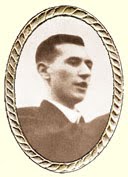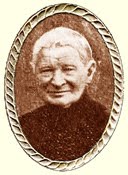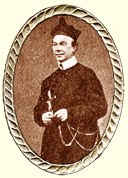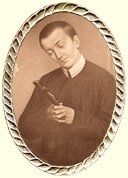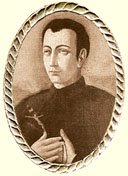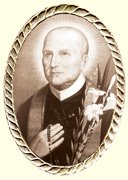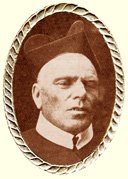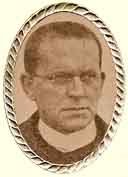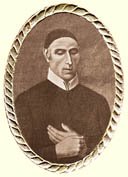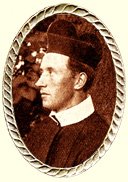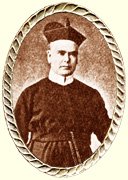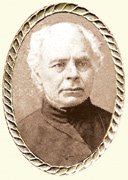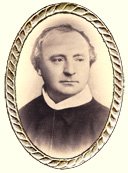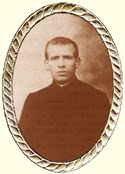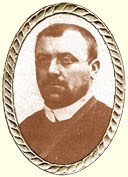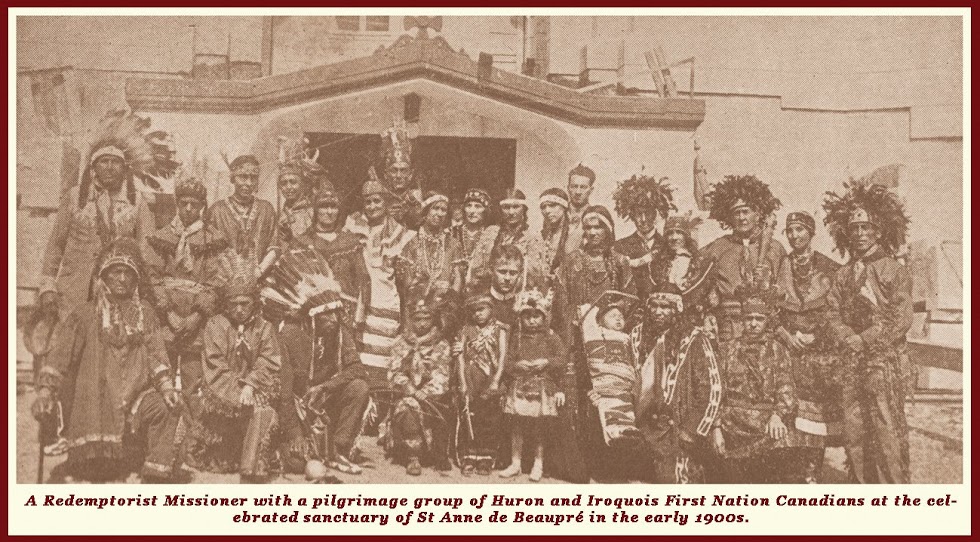Rev. Fr James Thompson, C.SS.R. (†1890)
This true Redemptorist was one of that number of holy young priests to whom Almighty God gives very extraordinary gifts of mind and heart to suit them for the exercise of the sacred ministry, but from whom His Infinite Wisdom, for reasons not known to us, withholds strength of body and length of days. Father Thompson was a man of great talent, and a priest whose consuming passion was zeal for souls. His sympathy with the poor, and kindly disposition towards all were remarkable. To him, indeed, the words of the Apostle are very applicable, that he made himself all to all in order to gain all to Christ. And yet Father Thompson’s short career – he died when thirty-eight years old – was devoted to teaching rather than to missionary work among the people.
He belonged to a Scottish Presbyterian family, and was educated in one of the public schools in England. He used modestly to complain in after life that his masters had formed too high an idea of his abilities as a student, and that he had been in consequence advanced too quickly into the higher classes; but in this point his judgment may be doubted. It was not until college days were over, and he had already chosen and entered upon a secular calling that God gave him light to enter the Catholic Church, and when he was faithful to this, a further call to the priesthood and the Religious state.
He entered the Redemptorist Novitiate at Bishop Eton in 1876, and was admitted to the Vows on the 15th of October of the following year. Four years later he was ordained priest, continuing his Theological studies during the year after ordination. He was then for some years a professor in the House of Studies at Teignmouth. During this period when the summer vacations came round for the students, instead of taking some rest after the year's teaching, he was urged by his zeal for souls to spend the time giving Missions.
He was sent to Ireland to teach in the Juvenate in 1886, and an appointment some twelve months later as Director of the Juvenate, may be supposed to have been something of the nature of a trial to one whose natural bent seemed to impel him so strongly to the apostolic work of the Missions. If he felt it as such, those who saw him work in the Juvenate could hardly have thought so, he devoted himself so entirely to the boys. To him the education of those, who, he hoped, would later on do the work for souls so dear to his heart, was a great field for apostolic zeal.
It is told of him that on one occasion when he had taken part in the annual retreat given to the Confraternity of the Holy Family his interest in the boys’ studies became visibly increased, and when he feared that he might seem too exacting, he explained that the little experience which he had lately had of the great work to be done for souls, made him feel that anything that could be done in preparation for that work was not excessive.
But Father Thompson’s labours were drawing near their end. He had become so delicate that the Superiors, following the doctor’s advice, sent him to the warm climate of Australia in the hope that he might there recover strength. It was not, however, to be so. He grew ever weaker until his holy death on the 2nd May, 1890 at the Waratah Monastery. He now enjoys, we trust, the full reward of apostolic zeal. †
He belonged to a Scottish Presbyterian family, and was educated in one of the public schools in England. He used modestly to complain in after life that his masters had formed too high an idea of his abilities as a student, and that he had been in consequence advanced too quickly into the higher classes; but in this point his judgment may be doubted. It was not until college days were over, and he had already chosen and entered upon a secular calling that God gave him light to enter the Catholic Church, and when he was faithful to this, a further call to the priesthood and the Religious state.
He entered the Redemptorist Novitiate at Bishop Eton in 1876, and was admitted to the Vows on the 15th of October of the following year. Four years later he was ordained priest, continuing his Theological studies during the year after ordination. He was then for some years a professor in the House of Studies at Teignmouth. During this period when the summer vacations came round for the students, instead of taking some rest after the year's teaching, he was urged by his zeal for souls to spend the time giving Missions.
He was sent to Ireland to teach in the Juvenate in 1886, and an appointment some twelve months later as Director of the Juvenate, may be supposed to have been something of the nature of a trial to one whose natural bent seemed to impel him so strongly to the apostolic work of the Missions. If he felt it as such, those who saw him work in the Juvenate could hardly have thought so, he devoted himself so entirely to the boys. To him the education of those, who, he hoped, would later on do the work for souls so dear to his heart, was a great field for apostolic zeal.
It is told of him that on one occasion when he had taken part in the annual retreat given to the Confraternity of the Holy Family his interest in the boys’ studies became visibly increased, and when he feared that he might seem too exacting, he explained that the little experience which he had lately had of the great work to be done for souls, made him feel that anything that could be done in preparation for that work was not excessive.
But Father Thompson’s labours were drawing near their end. He had become so delicate that the Superiors, following the doctor’s advice, sent him to the warm climate of Australia in the hope that he might there recover strength. It was not, however, to be so. He grew ever weaker until his holy death on the 2nd May, 1890 at the Waratah Monastery. He now enjoys, we trust, the full reward of apostolic zeal. †




















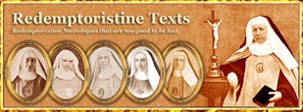
.jpg)









